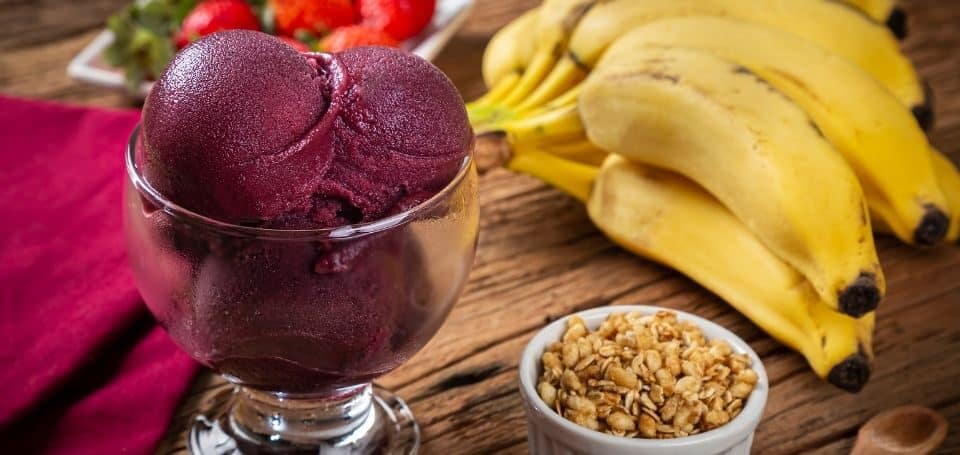
Coconut bowls – the eco-friendly bowls
August 19, 2020
Nutrition
August 29, 2020Vitamins: deficiency can cause health conditions associated to essential body functions
Vitamins: organic molecules necessary in small quantities for proper body functioning and to ensure chemical reactions occur in the right timing and with the correct amount of energy consumption

Vitamins – introducing origin and role
01 – ORIGIN
Generally associated with Casimir Funk, a Polish biochemist, recognized as one of the first to formulate the concept behind them in 1912: vital + amines. Casimir believed these nutrients were essential to humans, being responsible for the correct functioning of our body. These amines were vital for human beings, hence “vitamins”.
02 – ROLE
Vitamins are organic molecules present mostly in fruit and vegetables. They cannot be synthesized, and human body need them as “fuel” to properly function because they:
Act as Catalyst for energy transformation process
Guarantee fast and low Energy consuming chemical reactions
For example, some are antioxidants being essential for our immune system proper functioning. Deficiency may cause health conditions associated with infections from bacteria and viruses.
https://www.hopkinsmedicine.org/health/conditions-and-diseases/disorders-of-the-immune-system
Vitamin – types: Water-soluble and Fat-soluble
There are 02 types of Vitamins:
Water-soluble: soluble in water. Cannot be stored. Example: Vitamin C and B Complex Vitamins
Fat-soluble: soluble in fats and oils. Can be stored. Example: Vitamin A, Vitamin D, Vitamin E and Vitamin K
Vitamin C
Present mostly in citrus fruits, broccoli and tomato
Deficiency may cause mouth bleeding, weakness, skin and wound healing health conditions
Vitamin B1
Present mostly in vegetables, whole grains and pork meat
Deficiency may cause beriberi and similar health conditions
Vitamin B2
Present mostly in vegetables, whole grains, milk and derivatives and meat
Deficiency may cause skin health conditions
Vitamin B3
Present mostly in vegetables, grains, nuts, egg and meat
Deficiency may cause digestive system and skin health conditions
Vitamin B5
Present mostly in vegetables, fruits, whole grains, vegetables and milk and derivatives
Deficiency may cause cartilage health conditions
Vitamin B6
Present mostly in vegetables, whole grains and nuts
Deficiency may cause mood, blood and muscle health conditions
Vitamin B7
Present mostly in vegetables, egg and meat
Deficiency may cause skin and neuro-muscle health conditions
Vitamin B9
Present mostly in vegetables, nuts and whole grains
Deficiency may cause blood and congenital health conditions
Vitamin B12
Present mostly egg, milk and derivatives and meat
Deficiency may cause neurological and anemia health conditions
Vitamin A
Present mostly in dark green, greenish and orange colored vegetables, milk and derivatives and red meat liver
Deficiency may cause eyes, skin and immune health conditions
Vitamin D
Present mostly in milk and derivatives, fish and egg yolk
Deficiency may cause rickets and osteoporosis health conditions
Vitamin E
Present mostly in vegetable oils, nuts and seeds
Deficiency may cause neurological health conditions
Vitamin K
Present mostly vegetables and also produced by our digestive system
Deficiency may cause blood coagulation health conditions
For more detailed information about
https://www.healthdirect.gov.au/search-results/Vitamins
https://www.healthdirect.gov.au/vitamins-and-minerals
Vitamin – did you know?
Fact 01 – our body is capable of synthesizing 02 vitamins:
Vitamin D: sun exposure stimulates production
Vitamin K: bacteria present in our digestive system
Fact02 – vitamins supplements should be consumed after consulting a physician
Lack: don’t judge your Vitamin deficiency strictly by “what I feel”. Some symptoms are the same for different types of vitamins
Excess: fat-soluble vitamins are stored in fat tissues in our body. Only excess of water-soluble vitamins are eliminated by our body
For more information, browse thru World Health Organization:
https://www.who.int/vmnis/vitamina/en/
https://www.who.int/nutrition/publications/micronutrients/9241546123/en/
https://www.who.int/nutrition/publications/vitamins_minerals/en/
For more information about the Australian Vitamin Market:
http://www.roymorgan.com/findings/7956-australian-vitamin-market-december-2018-201904260734
https://www.abc.net.au/news/health/2017-02-13/a-closer-look-at-australias-most-popular-supplements/8265840




